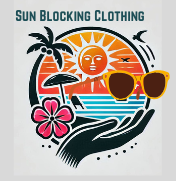Is White A Safe Color For Autoimmune Sufferers To Wear In The Sun?

Do you know? Is White A Safe Color For Autoimmune Sufferers To Wear In The Sun?
People who have an autoimmune disease have special concerns about what to wear to help protect them from the sun. Is the color white a good color for their sunblocking clothing?
There are over 60 autoimmune diseases that have been identified.
In the US, there are about 50 million suffering from autoimmune diseases of some sort.
Out of this 50,000,000, the vast majority of them are women!
Women who are of working and childbearing age were all suffering from autoimmune ailments! Another reason why sun blocking clothing is important for skin protection and keeping your skin healthy so it can protect you through your lifetime.
Your Life With an Autoimmune Disease
Check out these symptoms to make sure you are not in the 50 million who do have an Autoimmune Disease.
An autoimmune disease, (kind of a simplified description) means your own immune system is attacking healthy tissue.
One of the reasons autoimmune diseases are difficult to diagnose at first? The symptoms are so general. The fatigue, the low-grade fever? Maybe depression? That sounds a little general with no obvious unquestionable way to diagnose the condition.
With the 60 or so varieties of autoimmune disorders and the fact that each one affects your body differently? Your Doc will be fighting an uphill battle.
Scientists think that this autoimmune disorder condition develops when your body’s natural need for the immune system to kick in to protect your body from some sort of problem. Kind of a dammed if you do, and dammed if you don’t situation.
Rheumatoid Arthritis is an example of one kind of autoimmune disorder. Then there is Type 1 Diabetes. Check out here
The list also includes Lupus, Psoriasis, Alopecia, Addison’s Disease, Thyroid Disease, Pernicious Anemia, and Multiple Sclerosis. These are just a few of the ailments that scientists now think stem from a common action.
What is this common action? The activation of the body’s immune system against the body itself.
Also suspected of having this as a component are chronic fatigue syndrome and fibromyalgia.
A serious condition. And 50 million or so in the US alone share this immune system disorder in so many different varieties.
Now Let’s Think About Why Protecting Your Skin Is Important?
With autoimmune diseases, a common characteristic is that science thinks an outside agent is required to start the process.
Your genetic tendency, may not develop into an autoimmune disease without an environmental influence to set it off.
Like infections, certain foods (iodine or gluten products), and toxins (some drugs, smoking, certain hair dyes, chemicals in the workplace).
As well as too much sun!
Dozens of culprits have been identified. Possible suspects in the more common autoimmune ailments:
Hair dye and certain medications for lupus. There there’s silica exposure for scleroderma. Gluten is suspected for diabetes.
Mycoplasmas for rheumatoid arthritis!
Measles virus for Epstein-Barr; Or can it be a Virus for diabetes?
Physical trauma can also touch off the immune response. With evidence that sunburn is physical trauma that can be the start of weird and debilitating symptoms.
This business of Autominue Disease can complicate your life.
If you are having symptoms see your primary care physician, These can become serious and make daily life miserable. If you have been diagnosed already, protecting your skin from the sun will help keep flares down.
You may need to think of more protection than a White shirt. Medication for these conditions will make your skin more sensitive to the sun.
Just A Bit More About Autoimmune Disorders
While the disorders may vary, there are a few commonly shared issues.
Today scientists know that our immune system is a complex set of actions and reactions that can be triggered by many things. Not just an invading germ, virus, or bacteria.
Genetics is one thing that puts you at risk of being attacked by your own immune system.
So, if your parents have a predisposition to autoimmune disease, you may, too. A stinker thing is that if you have one autoimmune disease, you may have more. As well as, you may have different ones than your parent did (or your siblings do).
The idea that such different-seeming diseases as psoriasis and diabetes could stem from a common cause! This is a relatively new notion, according to Noel R. Rose, MD, Ph.D., (professor of molecular microbiology and immunology and pathology at the Johns Hopkins University in Baltimore.)
So there is still much to learn about those immune disorders. General good health practices are recommended to help you feel better.
Taking care of your skin is especially important, and the sun is the # 1 enemy of your skin.
You & Your Sun Sensitivity: What You Need to Know

Summer is on the way. It is time to think about getting it together mentally for keeping your skin protected from sun damage. If you have an auto-immune disorder, these questions are important.
You want to enjoy being outside in the warmer months. Even in the winter months when you live in my part of the world. If you have already been diagnosed with an immune disorder, you know how important it is to prepare for hotter, more sun dangerous weather.
Are you sun-sensitive? Can you handle an hour out in the sun? Can you use sunscreen to protect yourself? Or should you completely cover up? Or maybe your sunhat is enough, with your sunglasses?
Sun-sensitive? You can realize that sensitivity in several different ways. Usually, a rash appears or the one you have gets worse.
Sometimes you may develop joint pains, fever, and other signs of a general flare-up.
Sun-sensitivity symptoms can show up several days or even a few weeks after heavy sun exposure. (Like a sunburn)
If you have reactions to the sun, you can still enjoy getting out, just have to go about it a bit differently.
If you don’t know or you haven’t ever had reactions to the sun, it is still a good idea to ease into the new season. You know, just to make sure that nothing has changed,
Ease into the sun exposure by choosing early morning before 10 AM or late afternoon after 4 PM. Give yourself a reasonable time of being out, 30 minutes or so. If no reaction, a little longer the next day. Just ease into it.
Uh-oh, Your Arms From The Bottom Of Your Rolled Up Sleeves Have A Rash!
If you do think you are showing signs of a flare-up, check with your doctor right away.
Many flare-ups caused by the sun are very mild, but some are not, and they may need treatment.
If you know that you are not sun-sensitive, it is very unlikely that it will later develop unless you start taking medications, or change what you are taking.
If you know that you are sun-sensitive, assume you will always be. Over time you may become less sensitive. But there is a chance you will become more sensitive. Stay safe with sun blocking clothing to protect your skin from the sun.
While getting a base tan will not insure that you won’t sunburn, checking your skin’s reaction to the sun can save you from overdoing it the first long weekend. You will know more about how long you can safely be in the sun. When that time is done, just put on some sun blocking clothing.
White loose-fitting long sleeve shirts can help your wide brim sun hat and sunglasses take better care of your skin. Using sun blocking clothing can help you have fun in the sun, and keep your skin safe.
When you have sun-sensitive skin, you must make a few safe changes in how you do fun in the sun.

Sami’s Take On Is White A Safe Color For Autimmoune Sufferers To Wear In The Sun?
People who have autoimmune diseases often have trouble getting the help needed to live a happy and problem-free life. We take our immune system for granted until we can’t anymore.
The immune system has also led the medical community on a tough ride as well. The symptoms and warnings that we look for can be hidden and misunderstood. It seems that each patient is their own little island with different symptoms from anyone else.
You can help your Doctor make better plans for you and your health care by being ready to give accurate information and timelines. A log of the issues and symptoms will allow your healthcare giver to make good choices for you.
Help educate yourself about the difference between a sun-sensitive skin flare-up and a careless sunburn.
